What to Know Before Traveling to Cuba
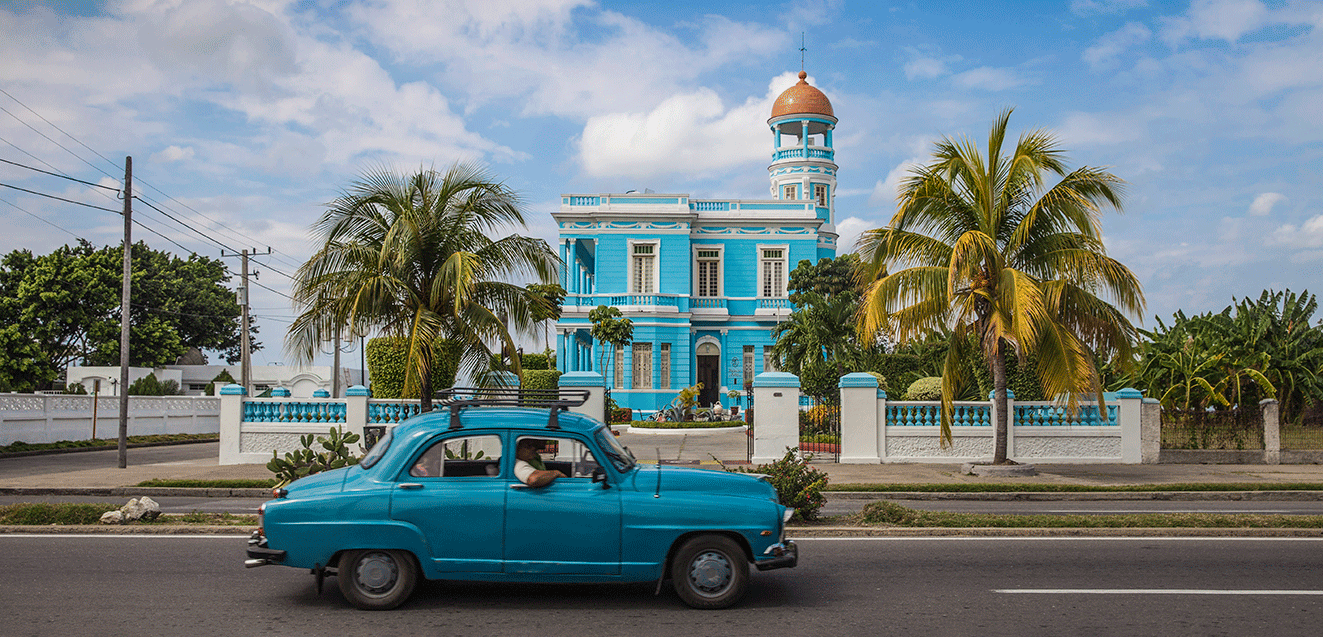
Cuba, an enigmatic nation steeped in history and nostalgia, is experiencing a dramatic period of change. This moment of transformation offers a unique opportunity to understand the country’s dynamics more deeply.
Navigating the continual changes in Cuba can be challenging for most travelers, which is why partnering with a well-established Cuba travel company is the key to a rewarding experience.Geographic Expeditions (GeoEx) helps unlock a trove of insights only gleaned through long-standing connections and deep cultural understanding. For over twenty years, we have navigated Cuba’s complexities to bridge the gap between the Cuba of imagination and the Cuba of reality, celebrating the spirit of the island and ensuring it is authentically experienced, genuinely known, and its dreams intimately shared.
We hope this article answers your most pressing questions about Cuba and will guide you through the practicalities of traveling to Cuba from America.
Cuba FAQs
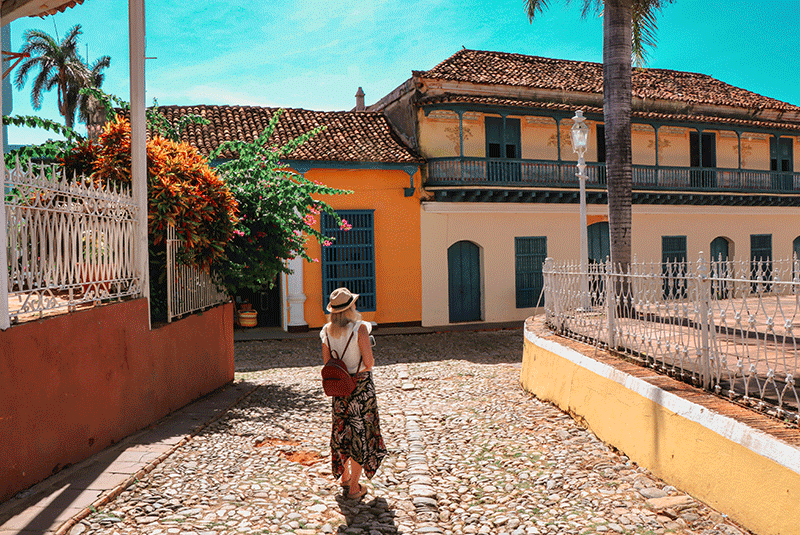
Can Americans travel to Cuba? What Are the Current Regulations?
Yes, Americans can travel to Cuba, although tourism alone is not permitted. Instead, the U.S. Department of Treasury’s Office of Foreign Assets Control (OFAC) authorizes travel under 12 specific categories. These categories include humanitarian projects, family visits, and “Support for the Cuban People,” which requires a full schedule of meaningful interactions between Americans and Cubans. It is important to note that travelers must self-declare their travel category when booking and that additional paperwork from the OFAC is typically not required.
GeoEx has long embraced these authentic interactions, and our itineraries are designed to align with all regulations under the “Support for the Cuban People” category and provide meaningful cultural interactions, support civil society, and nurture private entrepreneurs and businesses.
For the most up-to-date information, review the information provided by the U.S. Department of State at travel.state.gov.
What is the best time of year to travel to Cuba?
Like many tropical destinations, Cuba has two seasons: the dry season, from November through April, and the wet season, May through October. For sunny skies and warm temperatures without heavy humidity, travel between December and March. However, this is the most popular time for tourism in Cuba. To avoid the crowds, April-July can be a good time to travel. Just note that it will be more humid and likely have afternoon showers. Be sure to avoid the heaviest storms and hurricanes in September or October.
Is Cuba a good destination for children?
Yes, Cuba offers a vibrant cultural experience ideal for curious children interested in music, dance, and local interactions. We recommend this experience for children aged seven and older, and our travel experts can tailor itineraries that cater to your family’s interests while adhering to legal travel requirements.
Is Cuba safe for tourists? What should I be aware of regarding crime and safety?
Cuba is generally safe and welcoming to tourists. The most common crimes against tourists are property crimes, such as pickpocketing. You should exercise common-sense security measures, such as not displaying large amounts of cash and being mindful of your surroundings. We recommend using a money belt or a neck pouch hidden beneath your clothes.
It is important to avoid public demonstrations or acting in any way that could be perceived as undermining state security, such as photographing military officials or security cameras.
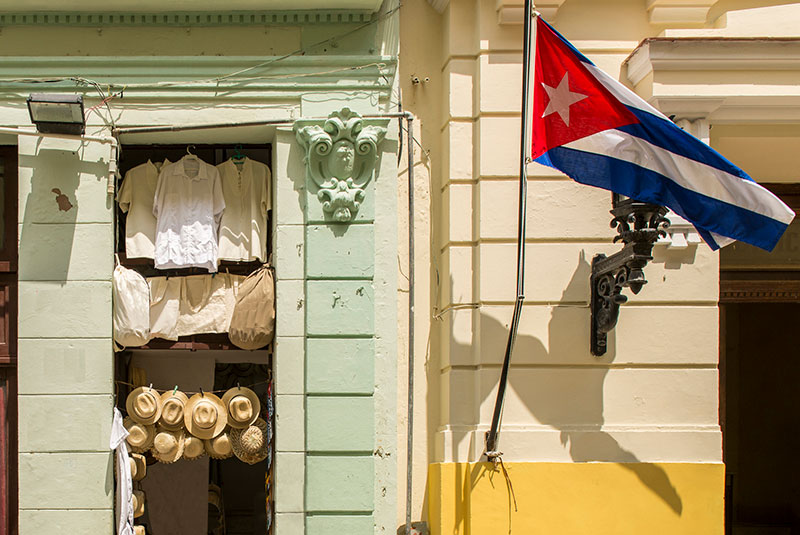
How many days should I stay in Cuba?
We recommend spending 6-8 days to get the most out of your visit to Cuba. This will allow you time to fully immerse yourself in the country’s rich cultural landscape and the ability to extend your visit beyond Havana to get a deeper understanding of the island.
Where can I stay in Cuba?
Most large hotels and resorts in Cuba are owned or affiliated with the Cuban government, so Americans are unable to stay at these establishments. Instead, GeoEx uses small boutique hotels that are privately owned by locals and offer a more intimate and authentic experience.
What is the food scene like in Cuba?
The restaurant scene is one of the most interesting and dynamic aspects of Cuba’s changing society. On a GeoEx trip, you will dine in private, non-government-owned establishments called paladares that are often located within local homes.
What’s on the menu in Cuba is often determined by what’s available that day. Rice, beans, and plantains are mainstays and are served at most meals. Pork, chicken, and seafood are common sources of protein. Fresh fruit and juices are plentiful, as well as famed Cuban coffee.
Do I need to follow a specific itinerary?
Yes, to qualify under the “Support for the Cuban People” visa, your trip needs to include a full schedule of activities that demonstrate that you are meaningfully interacting with local people and supporting private businesses.
You may need to show this itinerary when checking in for your flight, and you will need to provide a printed copy to customs in Cuba. We recommend keeping a couple of additional printed copies of your itinerary on hand as you travel around Cuba for your own reference and to have in the unlikely event you are asked for it along the way.
When booking with GeoEx, we ensure that your itinerary, whether for a small group or private trip, complies with all regulations.
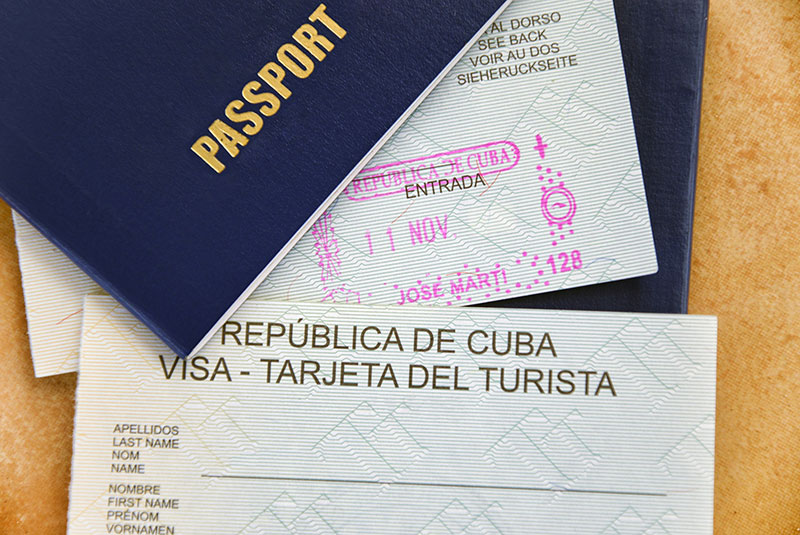
What do I need to travel to Cuba? What is The Visa Application Process?
Traveling to Cuba requires several key items: a valid passport, a Cuban Tourist Card (also known as a visa), travel medical insurance, and completion of the D’Viajeros Travel Form 48 hours prior to arrival. Ensure your passport is valid for at least six months beyond your arrival date and has two blank pages for stamps.
The Cuban Tourist Card can be purchased through your airline when checking in for your flight, and typically costs between $85 and $100. You must also have comprehensive travel medical insurance, which is included when you book with GeoEx.
The D’Viajeros Travel Form, a mandatory online requirement since 2023, must be completed 48 hours before your arrival.
Our Guest Services Team can assist with these requirements, ensuring a seamless travel experience.
Always stay updated with the latest information and check for any changes to travel requirements before your trip with the U.S. Department of State at travel.state.gov.
How do I get to Cuba from the U.S.?
Many U.S. airlines, including American, JetBlue, United, and Delta, offer direct flights to and from Cuba, typically from Houston or Miami. While booking directly through the airlines is possible, our GeoEx in-house air travel department can manage all your booking needs, easing the overall process and assuring you have everything you need before traveling, so that you can focus on the journey.
Can I use American credit or debit cards in Cuba?
No, U.S. credit and debit cards do not work in Cuba. You will need to bring enough cash to sustain your trip with you when you enter Cuba.
How much cash should I bring?
We recommend traveling to Cuba with from $100-$200 per day. While it is likely you will spend far less than that, the fact that you will not have access to more funds means it’s better to bring more than you’ll need. If you are looking to bring home expensive souvenirs or original works of art, you may want to bring more. The Cuban government requires that travelers declare cash amounts over the equivalent of $5,000, so it is best to stay within that limit.
What is the money exchange process? What currencies are best to bring?
The Cuban Peso is currently very volatile, and we do not recommend your exchange your currency. U.S. dollars are widely accepted throughout the country.
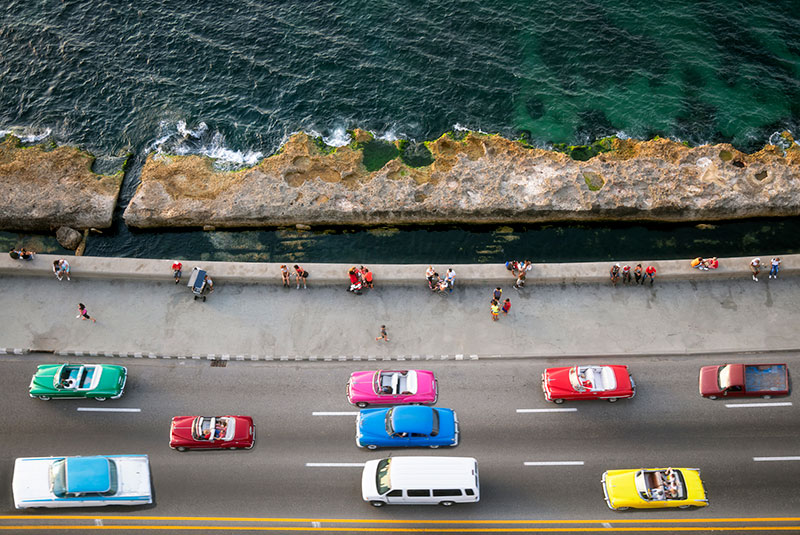
Are there restrictions on where I can spend money in Cuba?
Americans are not allowed to spend money at Cuban government-owned businesses or organizations affiliated with the Cuban military. The U.S. State Department keeps an updated list of restricted businesses where you cannot spend money.
Will my cell phone work in Cuba?
You might be able to use your U.S. cell phone in Cuba if your carrier has a roaming agreement with ETECSA, the state-owned telecommunications provider in Cuba. It’s essential to check with your service provider about possible extra fees for voice calls, data, roaming, and outgoing text messages during your trip. Make sure to get the most current information on service usage before you leave.
Is internet access widely available in Cuba?
While Cuba does have internet, it is limited, expensive, slow, and unreliable. You should not rely on having access during your trip. If you do access the internet while in Cuba, you should do so via a VPN.
Please be aware that even if your cell phone works in Cuba, cellular service on the island is often unreliable and inconsistent.
If needed, you can also make calls using a pre-paid phone card available at hotels.
What electrical outlets are used in Cuba?
In Cuba, depending on the location and building, you may encounter four different types of electrical outlets (types A, B, C, and L). The country operates on both 110-volt and 220-volt electric services at a frequency of 60 Hz. To ensure compatibility with these variations, it’s important to check if your devices support dual voltage. If not, you should bring a voltage converter. For convenience and safety, we recommend packing a combined travel adapter and voltage converter to use throughout your trip.
Can I drive in Cuba?
While Americans are legally allowed to drive in Cuba, we do not recommend doing so due to the road conditions on the island and fuel shortages. When you book your trip with us, all your transportation needs will be included in your itinerary.
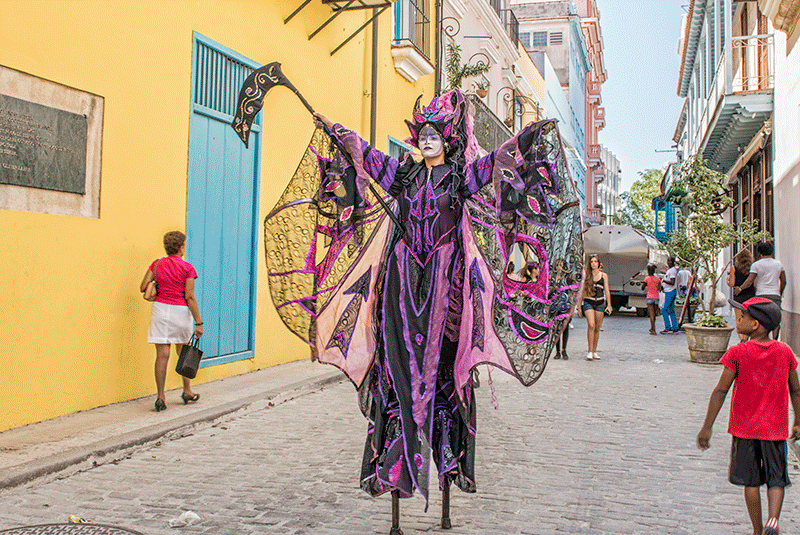
Can I take photographs in Cuba?
Absolutely! Cuba is one of the most photogenic places you can visit, and our travelers are encouraged to bring their cameras and get as many shots as possible. The only restriction on photography is that it is illegal to photograph military personnel and government buildings. Other than that, the same common courtesies and rules of appropriateness apply, for example, not taking photos of anyone without getting their permission first.
In tourist areas like Old Havana, you may encounter individuals dressed in elaborate historical or traditional attire. If you take their photo or pose with them, a tip is expected, as this is part of their livelihood.
What should I pack to go to Cuba?
It’s essential to pack everything you anticipate needing during your trip to Cuba, as common necessities such as shampoo, feminine hygiene products, and medicines may not be readily available. Be sure to bring basic first aid supplies, frequently used over-the-counter medications, sunscreen, toilet paper, and hand sanitizer.
Cuba’s dress code is casual. Given the typically hot and humid climate, we recommend packing lightweight, breathable clothing made from cotton or quick-drying synthetic fabrics. Although the rainy season runs from June through October, travelers visiting during the dry season should also be prepared for occasional rain showers.
We strongly advise bringing only a carry-on bag to avoid potential issues with delayed checked luggage. If checking a bag is necessary, ensure all essential items are packed in your carry-on.
What am I allowed to bring back from Cuba?
You can return with up to $800 worth of souvenirs duty-free. Unlimited amounts of Cuban art are also permissible, with appropriate export documentation provided by the artist.
Be sure to check the U.S. Customs website for the most up-to-date information.
Can you buy cigars in Cuba?
Unfortunately, Americans are not able to buy cigars to bring back to the U.S.
* * * * *
Are you ready to start planning your trip to Cuba? Our team of experts are ready to help craft your dream journey and answer all your questions. Contact one of our travel specialists at 888-570-7108 or submit an inquiry here.

